Last week, the public agenda in Turkey has been busy with three main topics.
First was the ongoing currency crisis and the sudden drop in value of Turkish Lira.
Second was ex-Prime Minister Binali Yildirim’s statement on the potential membership of Russia and China in the Organization of Turkic States.
Third had been the recent offer from Turkish offer to mediate between Ukraine and Russia.
Turkish currency crisis
The Turkish lira slid to a new record low on Tuesday after some new statements from the Turkish President Recep Tayyip Erdogan, opposing any increases in the interest rates.
The currency hit an all-time low, of 13.47 Lira against the US dollar in the Tuesday late afternoon, surpassing its previous record low last week of roughly 13.45, following renewed worries over the country’s monetary policy and concerns over the Covid-19 omicron variant.
The lira’s spiral down has been staggering, and plummeted from roughly 8.5 in late August this year to more than 13 Lira against the US dollar, within a mere three months.
Erdogan has consistently backed a lowering in interest rates to reign in rising double-digit inflation, and the lira has plummeted in value in recent years largely as a result of that. Yearly inflation in Turkey is around 20%. Erdogan has decommissioned three central bank chiefs for not aligning with his doctrine of lowering interest rates.
“I have always been arguing for lower interest rates and stated repeatedly that the rates should be lower. I have never advocated and will not be advocating for interest rate increases,” Erdogan was reported by Turkish press as saying on Sunday.
Economic experts and officials in the country have openly pleaded for the president to change course. But Erdogan has long held the unusual belief that higher interest rates cause inflation, rather than bringing it down.
“Interest rates are the reason, inflation is the result. My argument has not changed, I still defend it, believe in it,” the president said.
Investors seem to hold a very different view, if the dramatic sell-off last week that brought the lira to its latest record low is anything to go by. The lira “is now firmly in crisis territory,” analysts at London-based Capital Economics wrote at the time, adding that “higher inflation and tighter domestic financial conditions are likely to sap Turkey’s recovery.”
Turkey reported positive GDP growth figures this week, but the pain of a weakened currency outweighs that positive news, said Tim Ash, senior emerging markets strategist.
“Lower rates might deliver high real GDP growth but at the price of a weaker currency, higher inflation and longer-term concerns about macro financial stability,” Ash wrote in a note Tuesday.
Turkey’s GDP growth was an impressive expansion of 7.4% in the third quarter year-on-year, and 2.7% expansion from the previous quarter, driven by household and government consumption and exports. But the currency crisis and soaring inflation mean that those figures are far from the full picture.
“We think that the GDP figures released today tell us little about the pace of economic activity going forward as the recent sell-off in the Lira is likely to impact economic activity significantly,” analysts at Goldman Sachs wrote.
Nevertheless, the bank is revising its 2021 growth forecast upward by 1 percentage point to 10.5%. At the same time, Goldman is revising down its 2022 growth forecast by half a percentage point to 3.5% year-on-year.
There were also reports from local media that the Turkish central bank’s head of markets Doruk Kucuksarac had resigned, someone Ash described as a “credible” figure.
Also according to a presidential decree issued near midnight on Wednesday, Erdogan accepted the resignation of Finance Minister Lutfi Elvan and appointed his deputy, Nureddin Nebati, as the new finance minister.
Nebati, 57, has a bachelor’s degree in public administration and a master’s degree in social sciences from Istanbul University. He also holds a doctoral degree in political science and public administration from Turkey’s Kocaeli University.
Ex-Prime Minister’s statement on potential membership of Russia and China in the Organization of Turkic States
Former Prime Minister and current AKP Deputy Chairman Binali Yildirim joined the opening ceremony of the Institute of Turkology, co-founded by Izmir Katip Celebi University and National Mongolian University. Ahead of the ceremony, Yildirim spoke at the conference titled “Turkey, Turkic States and Related Communities”.
Binali Yildirim said that they would increase the number of Turkish States organizations in the coming years. “We are aware of our great duty and responsibility in this wide geography.” he stated.
Yildirim added that the Balkan nations, Russia and China are also natural members of this organization.
He stated: “With the Nakhcivan declaration, the Turkic Council was formed in 2009 and today has 7 members. Hungary and Turkmenistan have presently observer member status, and Turkey, Azerbaijan, Kazakhstan Uzbekistan, Kyrgyzstan are full members. This number is of course expected to increase in the coming years, but how so? Communities related to Turkic Nations, such as the nations that speak the same language family (Ural-Altai language family) or the countries with significant Turkic populations, are the natural members of this community. Mongolia for example, is one of them. Balkan nations such as Bulgaria, Bosnia and Herzegovina, Serbia, Albania, Macedonia, and especially Hungary, are among the natural members of this organization and will hopefully be a part of this organization in the future. In addition, Russia and China are also the natural members of this organization. We have a great duty and responsibility in this vast geography. We are very well aware of this.”
Some other highlights from Yildirim’s speech are as follows:
“Some can say ‘Are Turks still chasing after their old dreams?’ The reality is that there’s the UN, the largest roof organization in the world. And under that there are small-scale organizations and regional collaborations. There is the Arab League, the African Union, the Caribbean community or the Organization of the South American nations, the European Union, the Commonwealth of Independent States and the Shanghai Cooperation Organization. And the Organization of Turkish States is one of these smaller organizations. So, what is the purpose of this organization? To improve the regional co-operation and the well-beings of peoples of the member states, to maintain a permanent security among the member, and to unite these countries under the goal of a common future, by eliminating the differences in development methods, transportation, telecommunication, economy, imports and exports, culture etc.”
Yildirim also spoke about the support of Turkey to its ally Azerbaijan, another member of the Organization of Turkic States:
“Azerbaijan resolved its 30-years long issue with a 44-day conflict. Back then when the Soviet Union was crumbling and new independent nations were forming, Armenia had taken advantage of this opportunity and occupied nearly 25 percent of the Azerbaijani sovereign territory. One million people had to relocate from that region. They had to be a “runaway, deserter” as the Azeri people call themselves. Organizations such as the UN, OSCE or the Minsk Group have tried to resolve this crisis for 30 years. However it was no use, and nothing solid came of it. They told the Azeris, they were right, but they also told them to ‘stick with the status quo’, and years passed. At the end, Azerbaijan had to take matters into its own hands. Azerbaijan has driven out the invaders in just 44 days, and Turkey has given all kinds of support throughout this entire process.”
Yildirim also hailed the Russian President Vladimir Putin’s sense of justice, in Karabakh crisis:
“We also need to give credit to the dedicated and fair sense of the Russian President Mr. Putin. If you may remember, when this crisis was intensified by the Armenian diaspora at the time, Mr. Putin made the issue very clear by saying, ‘Why are you in a panic, there is no war here, Azerbaijan is just ending the foreign occupation in its own territory.’ This is a very important attitude, which is to be expected from a statesman, for the peace and well-being in the region.”
“Our goal with this organization, is to ensure the mutual prosperity, to eliminate regional issues and turmoil, to ensure a common stance against the evil of terrorism that threatens the future of our peoples, and to improve all kinds of cooperation and solidarity, especially in throughout the region that extend from the Caucasus to Central Asia. Our main goal is to gain friends, and to reduce the number of adversaries. This is the true purpose of the Organization of Turkish States.”
Turkish offer to mediate between Ukraine and Russia
Turkey has been in contact with both Russia and Ukraine, Foreign Minister Mevlut Cavusoglu said Wednesday, noting that Ankara advised both sides to remain calm and de-escalate the situation.
Cavusoglu answered reporters’ questions at the beginning of the second day of the NATO Foreign Ministers Meeting.
When asked how to respond to Russia’s aggressive stance, Cavusoglu said: “We are in contact with both parties. We recommend calm and de-escalation. I spoke recently with the foreign ministers of both countries, Sergey Lavrov and Dmytro Kuleba. On Friday, our president will speak with Russian President Vladimir Putin. I will see Dmytro Kuleba here today and in Stockholm tomorrow. Tomorrow in Stockholm I will also see Lavrov. So we are in contact with both parties and advise them to remain calm and de-escalate.”
Concerning possible sanctions against Russia, Cavusoglu stated: “As Turkey, we do not believe that sanctions will solve the problems. It was applied to this or that country in the past, but it did not solve it. Sometimes we have been subject to sanctions. Sanctions don’t solve problems. Instead of sanctions, for example, we should have meaningful deterrence. What we believe as Turkey is the right balance between deterrence and dialogue. Nobody can help Ukraine or any other country only through sanctions.”
Russian Foreign Minister Lavrov also said Wednesday that Putin and President Erdogan could discuss Turkey’s proposal to mediate conflict in Eastern Ukraine.
Meanwhile, Russian Foreign Ministry Spokesperson Maria Zakharova commented Wednesday during a briefing in Moscow on the offer by President Erdogan for Ankara to serve as a mediator between Russia and Ukraine. She said that offer did not refer to the conflict in Donbass between Ukrainian government forces and Russia-backed separatists.
Turkey could mediate between Ukraine and Russia amid increasing tensions in the region, Erdogan said recently.
“It is our hope that this region does not become a region dominated by war,” Erdogan said. “Let this region walk into the future as a region dominated by peace.”
“It is our desire that the attitude in this matter develops in a positive direction. There could be a mediation about this, we will discuss this issue with them, we would like to have a share in the solution of this by developing these talks both with Ukraine and with Mr. Putin,” he added on his return from Turkmenistan.
In its initial response, Kremlin spokesperson Dmitry Peskov dismissed Ankara’s offer while speaking to journalists in Moscow, saying: “The fact is that Russia is not a party to the conflict in Donbass, it will be impossible to find solutions to the problem at such a summit.”
Ukraine, on the other hand, welcomed the president’s statements.
“We will welcome any efforts that can help us to put an end to this war, to return Ukraine’s territories that are currently under Russian control,” Ukrainian Foreign Minister Dmytro Kuleba told a news briefing.




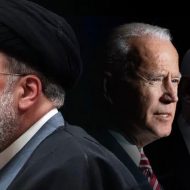
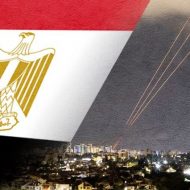
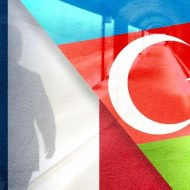
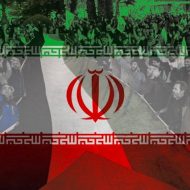
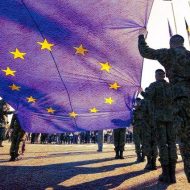
Leave a Reply